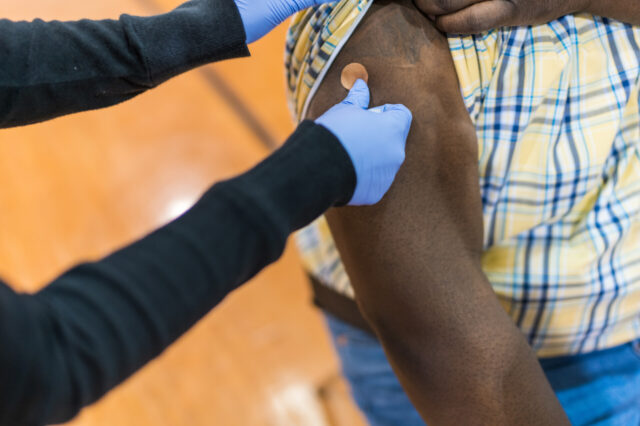Answering Your Immunization Questions

Over the past year, the importance, availability and effects of vaccination have been at the forefront of global conversation. As your trusted health care providers, we’re answering your questions about vaccines as part of a healthy lifestyle.
Why do we need vaccines?
When we’re born, we have some immunity to viruses and bacteria from our mothers. After a few weeks, this natural immunity disappears. Infant immunizations help protect children against disease after this period.
Vaccines have made some life-threatening diseases, like polio and measles, extremely rare in many parts of the world. Vaccines help rare diseases stay rare.
How do vaccines work?
Vaccines “teach” your body to make proteins that help you fight viruses and bacteria that can harm you. When your body comes across the virus or bacteria later, it will know how to protect you from it.
They can do this in many different ways:
- Live virus vaccines contain a small, safe amount of weakened virus. For example: chickenpox
- Killed vaccines contain a protein or small piece of the virus. For example: whooping cough
- Toxoid vaccines contain a safe amount of the toxin a virus or bacterium produces. For example: diphtheria
- Biosynthetic vaccines contain a man-made substance that is similar to the virus or bacteria. For example: hepatitis B
If a vaccine is given in a series of doses, such as the HPV vaccine, make sure to receive all doses of the vaccine. Talk to your health care provider about conditions that may prevent you from receiving certain live vaccines.
How do COVID-19 vaccines work?
mRNA vaccines teach our cells how to make a protein that triggers an immune response. For example, the mRNA from a COVID-19 vaccine never enters the nucleus of the cell, which is where our DNA is kept. This means the mRNA cannot affect or interact with our DNA in any way. Instead, COVID-19 mRNA vaccines work with the body’s natural defenses to safely develop immunity to disease. You can learn more about how mRNA vaccines work in this video.
Johnson & Johnson’s Janssen vaccine is another solution to fighting COVID-19. Viral vector vaccines use a modified version of a different, harmless virus (the vector) to deliver important instructions to our cells to start building protection. The instructions are delivered in the form of genetic material. This material does not integrate into a person’s DNA. These instructions tell the cell to produce a harmless piece of virus that causes COVID-19. This is a spike protein and is only found on the surface of the virus that causes COVID-19. This triggers our immune system to recognize the virus that causes COVID-19 and to begin producing antibodies and activating other immune cells to fight off what it thinks is an infection.
What is “herd immunity”?
Herd immunity happens when most members of a community are protected from a disease. This usually occurs through vaccination. This includes people who are unable to be vaccinated against the disease due to weakened immune systems. If one person in the community becomes infected, there are not enough viable hosts to spread the disease to. Getting vaccinated helps to protect you, your family and vulnerable members of your community against illnesses.
Why do we need a new flu vaccine every year?
Viruses have the ability to adapt and change over time. In the case of the flu vaccine, this is every year. Scientists study these changes and use them to create a flu vaccine that protects you from three to four strains they believe will be most common in the next year.
Are vaccines safe? What should I do in addition to getting vaccinated to keep myself safe?
The benefits of vaccines outweigh the risks. Physicians strongly recommend that you receive vaccines according to schedule as part of a healthy lifestyle.
In addition to getting vaccines to stop the spread of disease, use other healthy habits to reduce your risk of illness. Some healthy habits are proper handwashing technique, practicing safe sex, attending regular health screenings and talking to your health care provider when you have questions about your health.
Accessible vaccinations are a necessity for individuals and their families in every community, everywhere in the world. When you and your loved ones are able to receive immunizations against illness, we recommend that you do so under the supervision of your health care provider. Learn more at UFHealth.org.